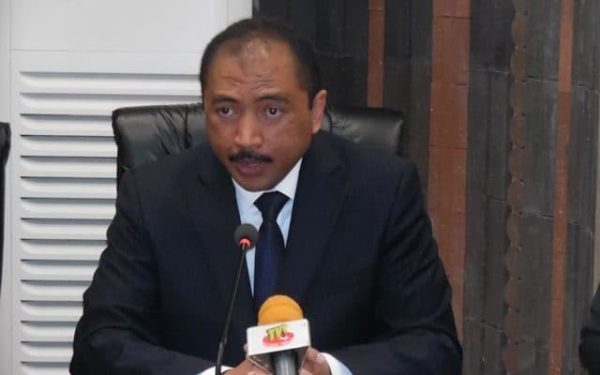It is on the eve of a new and almost unclear opposition demonstration that the International Monetary Fund (IMF) has indicated its fears over the repercussions of socio-political unrest on Togo’s economic growth.
“Socio-political tensions pose a risk to the prospects for economic growth with a negative impact on the real economy and tax revenues,” said Ivohazina Razafimahefa, the head of a mission that stayed in Lomé on 27 March. April 10, 2018 as part of the second review of the program supported by an Extended Credit Facility.
“Economic activity slowed down in the second half due to socio-political unrest. As a result, the growth rate of the economy is estimated at 4.4% in 2017 compared to 5.1% in 2016, “he added, predicting a” rate slightly lower than 5% “for the year. In progress.
The mission specifies as well as the main factor of the decrease of growth of the activity is the socio-political situation. “Under the program, we have forecast that private investment will grow rapidly to support economic growth,” says the chef de mission.
But, he adds, “in talking to private sector operators, we came to the conclusion that this rapid growth in private investment is not happening. The private sector indicates that the main reasons are socio-political. And to regret that the economic growth of Togo does not follow the “regional or international dynamise”, given the market opportunity, including indicators of foreign trade.
As a reminder, since August 2017 Togo has been experiencing a political crisis marked by demonstrations – often enamelled with violence – by the opposition demanding constitutional reform. Modified in 2002, the latter does not limit the number of presidential terms, and provides for a one-round voting system.
The dialogue started on February 19, 2018 under the facilitation of the Ghanaian president, Nana Akufo-Addo, seems to be a thing of the past. Indeed, the rules of procedure of these discussions recommend the cessation of the electoral process in progress, and the suspension of the demonstrations until the end of the works. But it will be without counting with a government worried about possible delays in the electoral process, and an opposition led by a Tikpi Atchadam who swears by so-called peaceful marches.
In a press conference on Tuesday, the opposition coalition announced that it is holding its planned protests on April 11, 12 and 14, when the government announced a few days earlier that it “can not to be complicit in the violation of the facilitator’s recommendations (…) by letting the demonstrations take place “.
On the social front, the picture is not rosy. The main trade union organizations, including the Workers’ Synergy of Togo (STT), the Coordination of Education Unions of Togo (CSET) and the National Union of Hospital Practitioners of Togo (SYNPHOT), are increasing their strike movements in the sectors of education and health, and government responses do not convince opinion.



